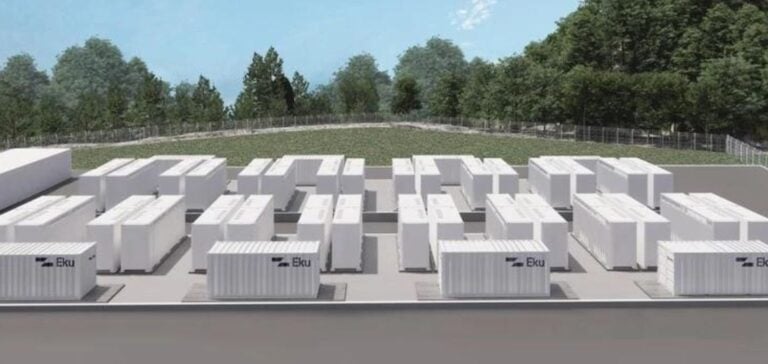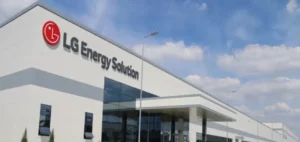Battery storage company Eku Energy has announced its ambition to expand its global energy storage capacity to 9 gigawatt-hours (GWh) by 2028. At present, this capacity is around 1.3 GWh. This initiative aims to facilitate the global energy transition by maximizing the use of renewable energies. Eku Energy’s development of energy storage projects is supported by the Macquarie Group’s Green Investment Fund and Canadian pension fund British Columbia Investment Management. In April, Eku Energy unveiled its first project in Japan: the construction of a 30-megawatt/120-megawatt-hour (MWh) battery energy storage system in Miyazaki prefecture, on the island of Kyushu.
The Japanese Project: A First Step
Resource-poor Japan is stepping up its efforts to develop renewable energies in order to meet its decarbonization targets and strengthen its energy security. The use of batteries is intended to compensate for the intermittent nature of solar and wind power. For this project, Eku Energy has signed a 20-year purchase agreement with Tokyo Gas. Construction work will start this year, and operation is scheduled to begin in July 2026, with enough storage capacity to supply around 63,000 homes for four hours. Kentaro Ono, Managing Director of Eku Energy in Japan, said:
“We aim to expand our battery energy storage capacity to 9 GWh by 2028, from around 1.3 GWh currently in operation or announced.”
Eku Energy is developing energy storage projects in the UK, Australia, Italy and Japan.
Global and National Perspectives
Although the company has not set a specific target for Japan, it plans to develop a significant number of projects in the country, which is the world’s fourth largest consumer of electricity. Japan is setting up an electricity market system to adjust supply and demand, which should encourage the growth of energy storage. Battery storage is developing rapidly worldwide, mainly in China and the USA. Japan, despite a certain lag, should see its growth accelerate thanks to government support and institutional changes such as the development of a market for the adjustment of electricity supply and demand.
Avoiding Renewable Energy Waste
As the deployment of renewable energies expands in Japan, requests from power companies to reduce production in order to balance supply and demand have become more frequent nationwide. This wastes clean energy that could otherwise be used. By integrating more storage solutions, Japan could minimize these losses and optimize the use of its renewable resources. Expanding Eku Energy’s storage capacity is therefore a crucial step in meeting these challenges. By diversifying its international projects while strengthening its presence in Japan, Eku Energy is positioning itself as a key player in the renewable energy and energy storage sector.
Achieving the 9 GWh target by 2028 would support the stability of the global power grid and promote more efficient and sustainable use of energy resources.





















